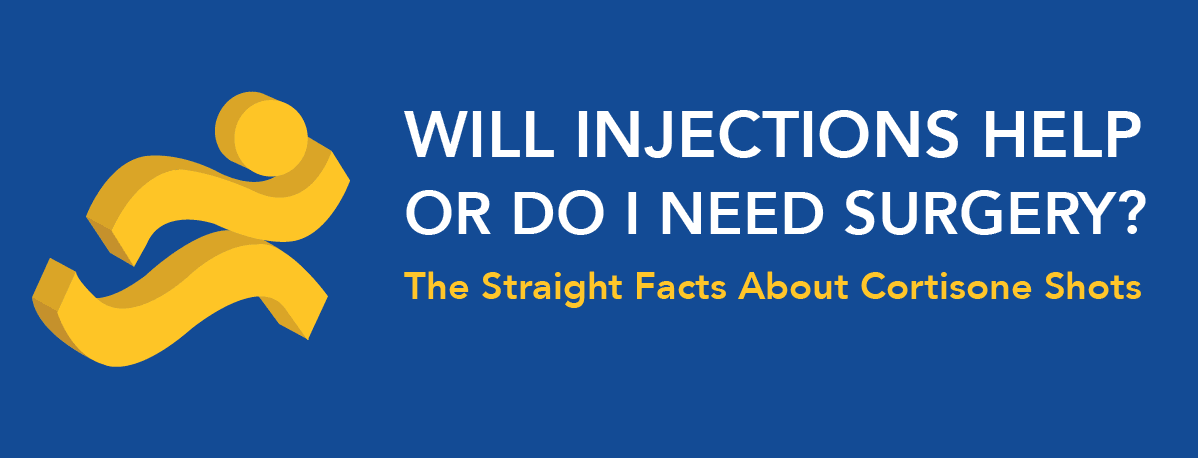Cortisone is a potent anti-inflammatory medication that can be used to treat a wide range of orthopedic conditions, but Cortisone shots are not a one-size-fits-all solution. For some patients, injections can be highly effective, but in other cases it may be time to consider surgery.
According to orthopedic surgeon Dr. Noerdlinger, there are three common misconceptions people have about cortisone shots:
1. Cortisone is Just Temporary
Although the effects can be temporary, there are cases where Cortisone can offer long lasting pain relief for years.
2. Cortisone Only Masks the Pain
Novocain, such as lidocaine, will mask pain, but Cortisone decreases the inflammation which is causing the pain. The analogy is taking a steroid to decrease the inflammation from a sore throat. The steroid effect of the Cortisone decreases the inflammation and allows the joint to move more freely, enabling the patient to rehabilitate the joint more effectively.
3. Cortisone Damages Tissue
Used judiciously, cortisone will not damage tissue. Just like taking a bottle of Tylenol will destroy the liver, large amounts of cortisone–in a short time period, in the same body part–can weaken the collagen fibers. But, like Tylenol, where it is ok to finish off the bottle over the course of a year, intermittent Cortisone injections are permissible.
While Cortisone shots can be incredibly beneficial for some, there are situations where surgical intervention may be necessary:
1. Loss of Function
If your orthopedic condition has progressed to the point where it severely limits your ability to participate in daily activities and compromises your quality of life, it may be time to consider surgery.
2. Structural Damage
In patients with significant structural damage to a joint, such as advanced osteoarthritis with bone-on-bone contact, joint replacement surgery may be the best solution to restore function and relieve pain.
3. Repeated Injections are Ineffective
If you find yourself needing frequent Cortisone injections for the same issue, it indicates that the underlying problem can’t be managed with injections alone. If Cortisone offers only temporary relief, it might be time to have a discussion with your orthopedic specialist about surgical options.
Cortisone is a valuable tool in orthopedic care, providing pain relief and delaying the need for surgery in some patients. But it’s important to recognize the limitations of injections and to know when it’s time to consider the next step–surgical intervention like joint replacement. One scenario in which cortisone injections are not recommended is in the setting of fixable rotator cuff tears in patients considering surgery. Studies show that re-rupture rates and infection rates are higher in patients undergoing rotator cuff repairs who receive cortisone injections before surgery.
Your orthopedic specialist is your best resource in determining the most appropriate treatment plan for your specific condition, symptoms, and goals. Whether it’s cortisone injections or joint replacement surgery, the ultimate aim is to help you regain function, eliminate pain, and enjoy a high quality of life.



